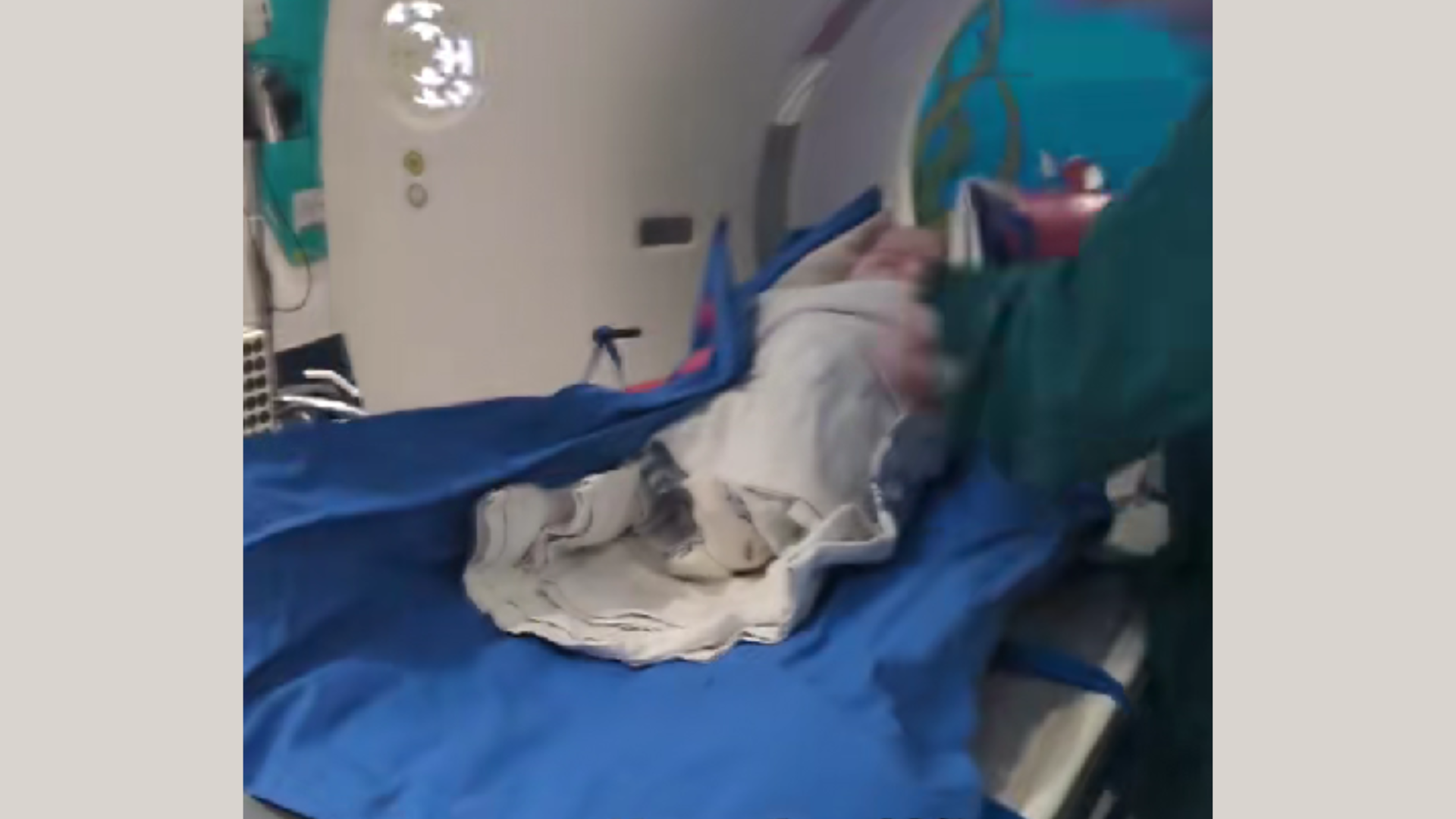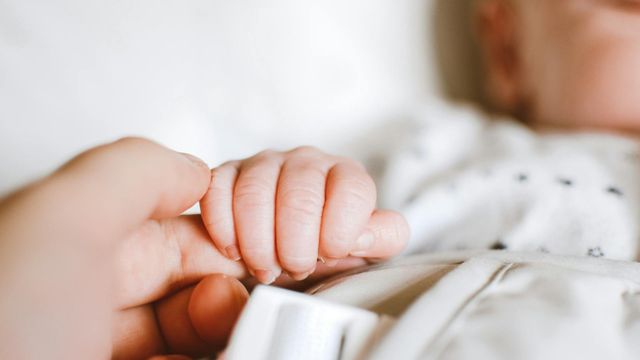Adult Symptoms, NEC Babies, Treatment
:max_bytes(150000):strip_icc()/GettyImages-1582606566-da9606ad30ad46979282fa94cca65496.jpg)
Enterocolitis is an inflammation of the large and small intestines. The word is a combination of enteritis, the inflammation of the small intestine, and colitis, the inflammation of the large intestine, more commonly known as the colon. When both parts of the intestine are inflamed, you can experience severe symptoms, including pain and diarrhea. A very serious form of this, necrotizing enterocolitis (NEC), can cause the intestinal wall to die. NEC is a leading cause of death in premature infants.
Continue reading to learn more about enterocolitis, including infectious enterocolitis, treatment, necrotizing enterocolitis symptoms in adults, and NEC’s impact on babies.
Svetlana Repnitskaya / Getty Images
Enterocolitis Effects: What Happens?
Enterocolitis happens when both the large and small intestines become inflamed. This often happens when people with reduced immune systems, including premature babies, have a severe reaction to an infection.
The severe inflammation can impact the mucus membranes in your digestive system. This changes how the body processes food and can lead to symptoms like diarrhea, vomiting, fever, and gas. These symptoms might seem minor but can lead to life-threatening complications.
Special Types
The most widely known type of enterocolitis is necrotizing enterocolitis (NEC), a potentially fatal condition in which tissue in the intestine begins to die. NEC kills about 40% of infants who develop it. This type of enterocolitis is rare in adults but can happen in people with suppressed immune systems, including those with human immunodeficiency virus (HIV).
Other types of enterocolitis include:
- Food protein-induced enterocolitis syndrome (FPIES), a type of food allergy—commonly to milk protein—that causes enterocolitis. FPIES are most common in children under 2 years old.
- Hirschsprung-associated enterocolitis, a complication of Hirschsprung’s disease, a condition in which babies are born with too few rectal nerve endings.
- Hemorrhagic enterocolitis, caused by E. coli infection, triggers bleeding in the intestines. It’s most common in babies and the elderly.
- Pseudomembranous enterocolitis, caused by the bacteria C. diff, often occurs in people who have recently been on antibiotics.
- Neutropenic enterocolitis occurs most often in people with low white blood cell counts, including those recently undergoing chemotherapy. Blood cancer patients and people with HIV are most at risk.
Enterocolitis Complications
Enterocolitis is so dangerous because it can lead to life-threatening complications, including:
- Obstruction or narrowing of the intestines
- Preformation (a break in the intestinal wall)
- Septic shock
Emergency Symptoms
Because enterocolitis can be deadly, it’s important to recognize emergency symptoms. Symptoms can come on slowly or appear suddenly. See a doctor immediately if you or your child experiences:
- Severe pain
- A high fever
- Signs of shock, including confusion or an elevated heart rate
Role of Necrosis
Necrosis is the death of tissue within the body. It occurs when blood isn’t flowing to tissue, which can happen with enterocolitis. Dead tissue needs to be surgically removed.
Causes of Enterocolitis
Enterocolitis is rare in healthy individuals and usually happens in people with suppressed immune systems, most often infants. However, adults with immune disorders can also experience enterocolitis.
A recent infection, including viral infections like the flu, bacterial infections including food poisoning, and parasites often cause the condition. It can also be triggered by other bowel conditions, including celiac disease and Crohn’s disease. Drinking too much alcohol or cocaine use can also cause enterocolitis.
Children
Unfortunately, doctors don’t know exactly what causes NEC, the most common type of enterocolitis in infants. They believe it is linked to premature babies’ underdeveloped immune systems and lack of blood flow.
Babies who are fed formula, rather than breast milk, are most at risk for NEC. Other risk factors for infants include:
- Serious illnesses
- Being in a nursery near other babies who have had NEC
- Having a blood transfusion
Adults
Enterocolitis is rare in adults. The adults at highest risk are the elderly and those who have:
- Bowel conditions, including Celiac disease or Crohn’s disease
- HIV/AIDS
- Blood Cancer
Enterocolitis Treatment After Diagnosis
To diagnose enterocolitis, doctors use imaging like X-rays and computed tomography (CT) scans, blood tests, and stool samples. When the healthcare provider understands the severity of the enterocolitis, they’ll form a treatment plan. Treatment varies widely depending on the root cause of the enterocolitis, but it often includes:
- Infection treatment, including antibiotics, antivirals, or medications to fight parasites
- IV fluids and electrolytes to treat dehydration
- Steroid to reduce inflammation
- Pain management
People who have severe enterocolitis, including NEC, may need more invasive treatments including:
- Surgery to repair the intestines, remove blockages, or remove dead tissue
- Drainage ports to help gasses and fluid escape the abdomen
- IV nutrition
What to Eat With Enterocolitis
Most often, enterocolitis happens in infants who are fed milk. If an infant develops NEC, doctors might recommend stopping bottle feedings and reverting to IV nutrition. In addition, breast milk is better than formula for babies that have NEC.
If you’re an adult with enterocolitis, talk with your doctor about what you should eat. This is highly personal and depends on the root causes of your enterocolitis.
What Does Enterocolitis Recovery Involve?
Recovery from enterocolitis can be difficult, especially because the condition usually occurs in people who are medically vulnerable, including the very young and very old. The prognosis will depend on the root cause of the enterocolitis. Some forms are curable, while others are chronic.
Even if the enterocolitis is cured, patients can have long-term health impacts. For example, babies with NEC may need to be fed intravenously and are at increased risk for short bowel syndrome.
Because recovery from enterocolitis is so individualized, it’s important to have honest conversations with your healthcare providers. They can help develop a recovery plan and let you know what to expect as you or your loved one recovers from enterocolitis.
Summary
Enterocolitis is an inflammation of the large and small intestines. When both intestines are inflamed at the same time, symptoms like diarrhea and vomiting can be more severe. There are many different types of enterocolitis, but one of the most common is NEC, a severe infection most common in premature infants that causes intestinal tissue to die off.
Treatment for and recovery from enterocolitis is very personal and depends on the patient’s overall health, other conditions they have, and the type of enterocolitis they develop. Working closely with trusted medical professionals can help you understand how this condition can impact you or your loved one immediately and over the long term.
link

:max_bytes(150000):strip_icc()/BurchHeadshotOutdoor-215a575f7ef34c52a908676f88bd9acb.jpg)



:max_bytes(150000):strip_icc()/asian-sick-little-girl-lying-in-bed-with-a-high-fever-952683074-5b5b784046e0fb005027ca13.jpg)

